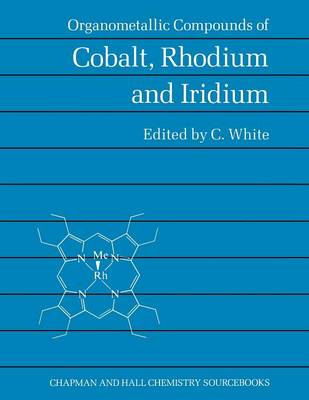Chemistry Sourcebooks
1 total work
Thisisoneofthefirstvolumestobepublishedintheseriesof Chapman and Hall Chemistry Sourcebookswhichprovidescarefullytailoredinformationtoworkersin specializedareasofchemistry.Theinformationcontainedinthisbookisderivedfromthe Dictionary of Organometallic Compounds,publishedinNovember1984. Theorganometalliccompoundsofcobalt,rhodiumandiridiumconstituteanimportant classoforganometallics:notonlydotheymeritstudyintheirownrightbuttheyarealso increasinglyusedbothascatalystsandaslaboratoryreagentsinorganicsynthesis. His thereforeanticipatedthatthisparticularcompendiumwillreachawidereadership. Thedatabankonthepropertiesoforganometalliccompounds,whichisrepresentedin itscurrentformbythe Dictionary of Organometallic Compoundsanditssubset publicationssuchasthisvolume,willbekeptcontinuouslyup-to-date. Supplementstothe main Dictionarywillappearannuallyandrevisededitionsofthis Sourcebookwillbe publishedfrom timetotimeasdemandspermits. C. White vii Introduction 1. UsingtheSourcebook (2) Anycompoundwithanestablisheduse,suchas incatalysis,asasyntheticreagentorstartingmaterial.
The Sourcebook is divided into element sections: (3) Other compounds of particular chemical, within each section the arrangement of entries is in structural, biological or historical interest, especially order of molecular formula according to the Hill those thought toexhibitunusual bondingcharacteris- convention (i.e. C, then H, then other elements in tics. alphabetical sequence of element symbol; where no carbon is present, the elements including Hare Some compounds which are not considered orderedstrictlyalphabetically). sufficiently important to justify separate entries of Every entry is numbered to assist ready location their own have been included as derivatives in the and the entry number consists of a metal element entries of other compounds. These may include for symbolfollowed byafive-digit number. example: (1) Organicderivativesintheclassicalsense. Indexes (2) Donor-acceptorcomplexes.
The Sourcebook is divided into element sections: (3) Other compounds of particular chemical, within each section the arrangement of entries is in structural, biological or historical interest, especially order of molecular formula according to the Hill those thought toexhibitunusual bondingcharacteris- convention (i.e. C, then H, then other elements in tics. alphabetical sequence of element symbol; where no carbon is present, the elements including Hare Some compounds which are not considered orderedstrictlyalphabetically). sufficiently important to justify separate entries of Every entry is numbered to assist ready location their own have been included as derivatives in the and the entry number consists of a metal element entries of other compounds. These may include for symbolfollowed byafive-digit number. example: (1) Organicderivativesintheclassicalsense. Indexes (2) Donor-acceptorcomplexes.
